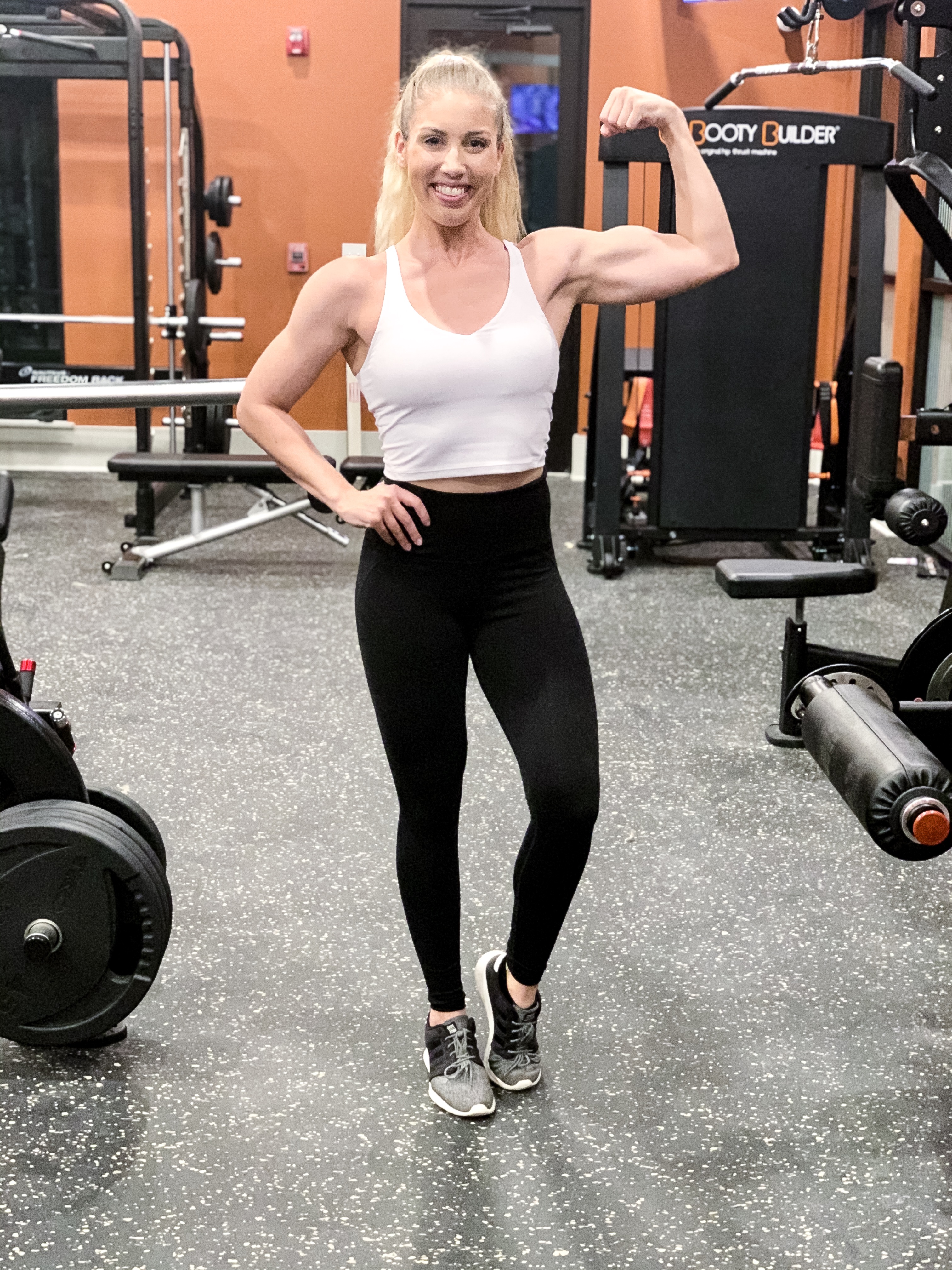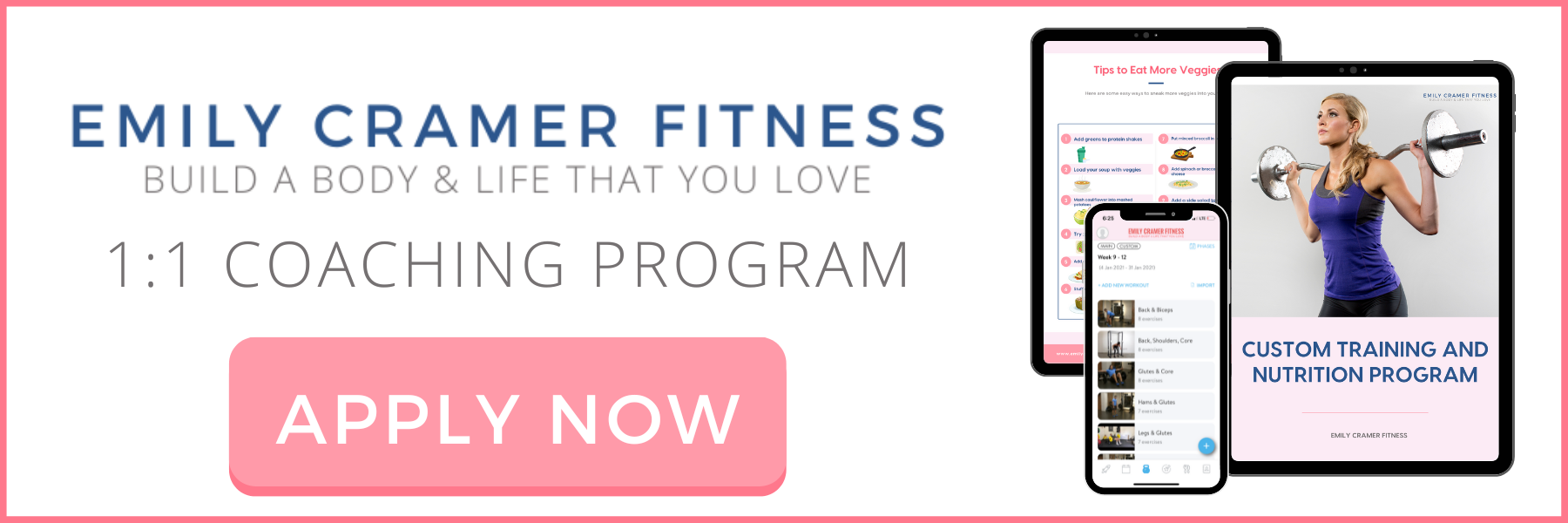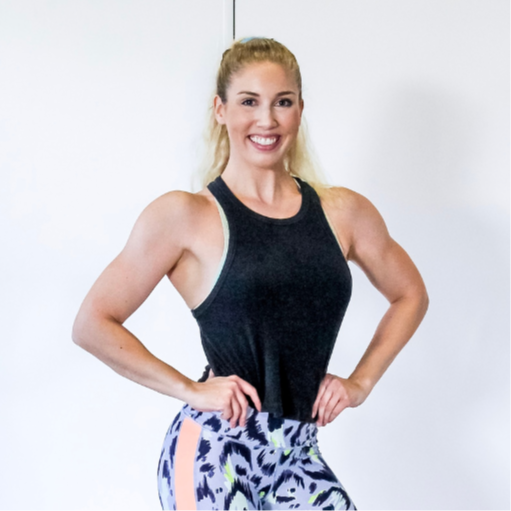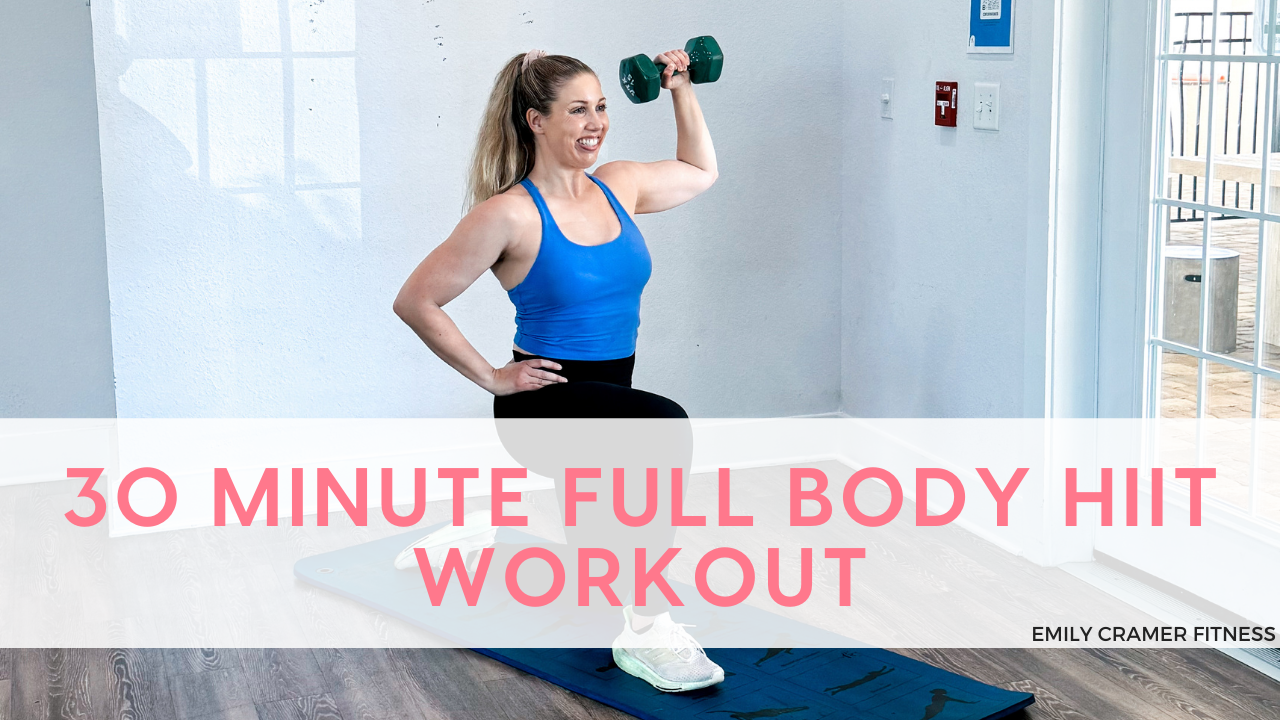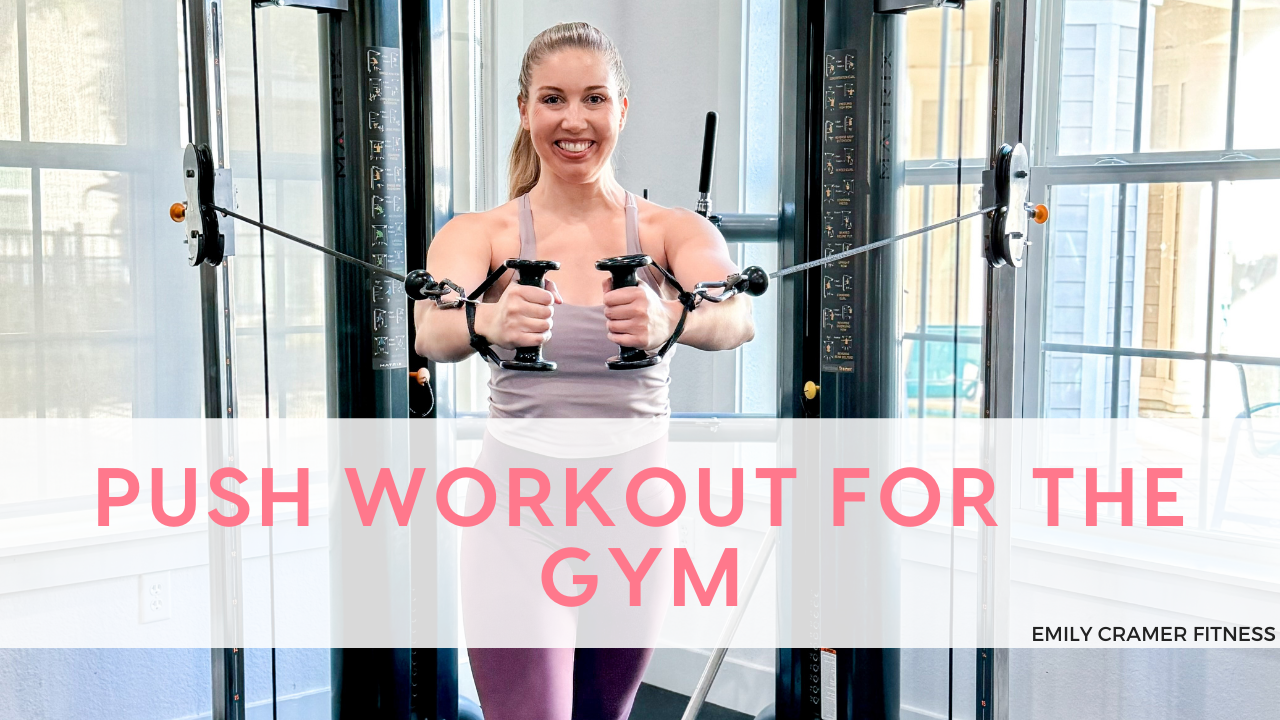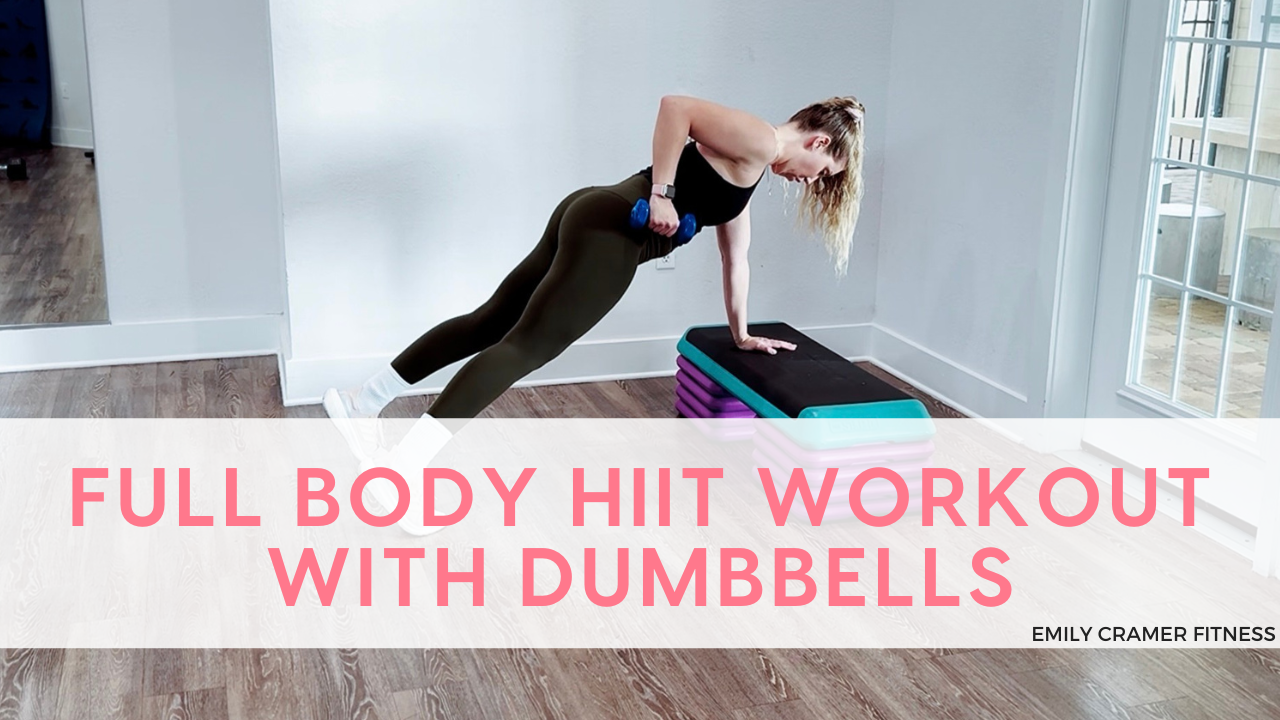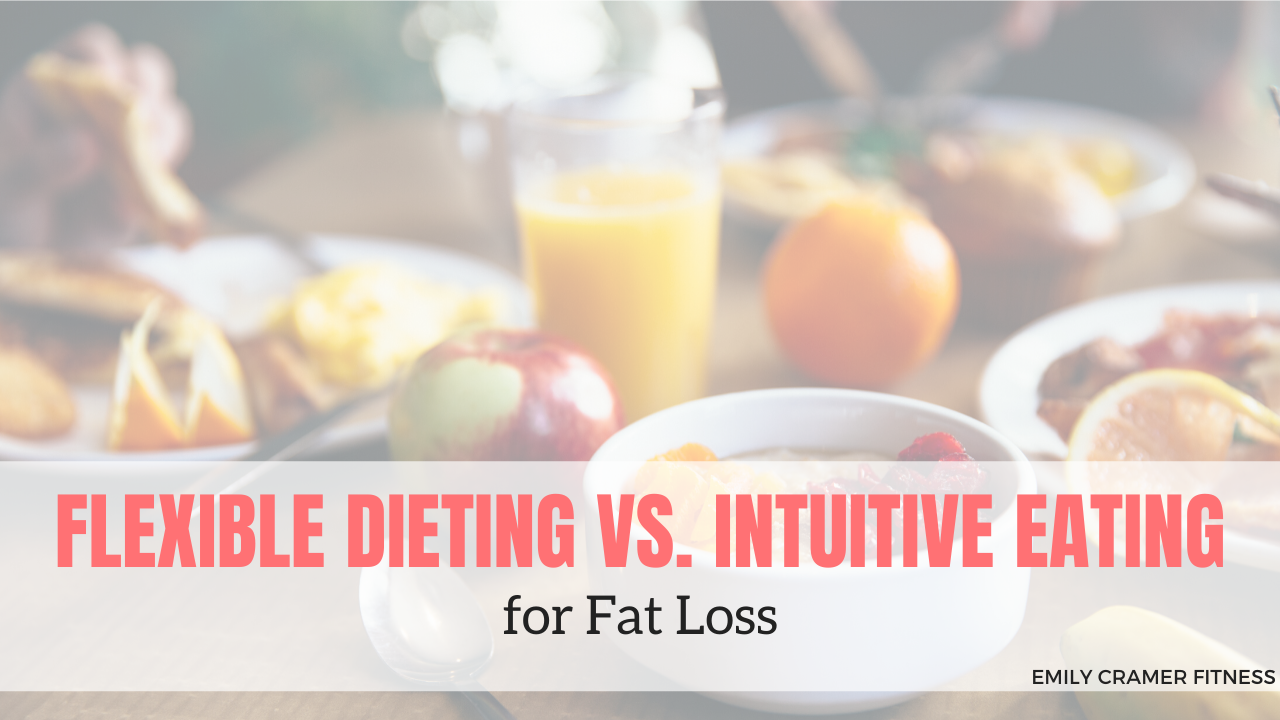
Tracking Macros vs. Intuitive Eating for Fat Loss - Which is Better?
What does it mean to track macros or eat intuitively?
First off, let’s talk about what these two dieting strategies actually entail.
Tracking macros, also known as flexible dieting, involves tracking your protein, carbs, and fats to reach your fitness goals. By tracking your macro intake you are, in turn, also tracking your calories. I have a whole separate post on the basics of macro tracking here.
Intuitive eating is a dieting strategy that does not require you to track your food in any way - calories, macros, etc. It entails listening to your body’s hunger cues, eating to the point of fullness, and stopping.
So which should you use for fat loss? Tracking macros or intuitive eating?
Most people fall in one camp or the other.
While I do believe there’s a time and place for both nutrition strategies in one’s fitness journey, I am whole heartedly an advocate for using macro tracking as a means to reach fat loss goals. Here’s why.
I love the following analogy because I think it fits the situation perfectly. If you had a goal to improve your finances, you would probably be checking in on your spending, right? You would monitor what’s going on your credit cards. You would monitor your bank activity. You might create budgets for different types of spending to keep your overall monthly spending down, right?
Chances are, you wouldn’t totally freestyle it. You wouldn’t avoid checking your account. You would know your numbers so you could ensure you were staying on track for your goals all month, would you not?
Why would tracking your food be any different?
Tracking macros, much like financial planning, is a strategy for “budgeting” your food and knowing your numbers. You know what goes in (eating calories) and what goes out (burning calories via exercises. The more empowered you are with information, the better you are able to make healthy decisions to reach your goals.

When you don’t know your numbers, it’s pretty tough to identify what’s slowing down progress or speeding it up. And in that case, how do you know how to keep fat loss results coming and then sustain them?
Optimal for Your Metabolism
Usually, when people pursue an intuitive eating approach to fat loss, they end up drastically reducing their intake from the get go. Since they don’t know exact amounts of calories consumed, the easiest way to ensure they are making progress is to make a significant change in what they’re eating and how much.
If they chop too many calories off without knowing it, they plateau faster and then can’t break through that plateau.
Tracking macros allows us to take things much more gradually, reducing calories little by little over time. This allows for a much longer fat loss phase in which they’re consistently losing week to week.
Then, when the inevitable plateau does pop up, they know how much they’ve been “budgeting” and can manipulate those numbers to keep results moving.
Faster Results
That being said, in general, tracking your macros leads to faster results. I hesitate using the word fast because I don’t believe in “lose 10 lb in a week” marketing gimmicks and dangerous “fast weight loss” tactics. They don’t work and they aren’t healthy or maintainable.
I mean, in the context of your whole fitness journey timeline, the overall gradual, healthy results you achieve from tracking macros will be faster and easier to achieve than with an intuitive approach.

You have full control over the factors that lead to progress (food/calorie intake), you will plateau slower, and you will be better able to adjust your plan to keep results coming when you do eventually plateau.
If you’re eating intuitively, you may be eating different intakes every day or every week. You may get stuck in a plateau, not even know it for a time, and then not know what to do to keep results moving. How could you when you don’t know exactly how to gauge calorie reduction?
Better Nutrition
With an intuitive eating approach, it’s hard to know where you’re falling short nutritionally. You may not even realize how much protein you’re lacking, how much Vitamin A you’re missing, how much cholesterol you have in your daily diet until you log your food in My Fitness Pal and get a full view of your macros, micros, and other nutritional intake information.
The beauty of tracking is that you become aware of exactly where your nutritional gaps are. You can’t solve a problem you don’t know exists.

Ensures Majority of Weight Loss is from Fat
If you're not tracking macros, you could very well still lose weight but you won't have as much control over how much of it is fat and how much of it is muscle. What you're eating matters to creating an optimal ratio of fat to muscle loss.
If you track your macros, you can ensure your body gets the protein it needs to preserve muscle and lose fat to see the scale drop, which is what we want.
Conclusion
As you can see, there are a lot of reasons to opt for a macro tracking approach to reach your fat loss goals. Knowing exactly what’s going into your body is the best way to keep results coming week after week.
As for intuitive eating, it’s absolutely something to work towards eventually. I believe in using a tracking approach to reach your goals and using an intuitive approach once you’ve achieved the results, and brought your metabolism back to a healthy spot via a reverse diet.
The end game should be to become so familiar with what healthy food portions and choices look like via tracking, that you can go on to eat intuitively (the responsible way.)
Most people that go on to become effective, healthy intuitive eaters tracked their food for quite some time before switching strategies. Through this, they began to understand how to measure portions and fuel their bodies properly with all 3 macronutrients.
Moral of the story: start with tracking to get to your fat loss goals. Along the way, you will learn what healthy portions and nutritionally dense food choices look like. This way, once you’ve reached your goals, you can opt for a more intuitive approach.
Are you ready to build a strong feminine physique you can keep for life?
Girl, it sounds like it’s time to apply for Emily Cramer Fitness 1:1 Coaching!
My 1:1 coaching program is for you if:
✔ You want to build lean, feminine muscle without your workout or nutrition program taking over your whole life. You want something sustainable and realistic so you don't just keep starting and stopping.
✔ You want help learning how to eat and workout for your goals and how to consistently execute on these healthy habits
✔ You've been struggling with all or nothing thinking. You're tired of feeling like you need to do everything perfectly in order to see progress.
✔ You want to radiate confidence and strength - not just look fit, but feel it too!
✔ You want to make changes surrounded by women who get you, get your goals, and make fitness fun.
Not convinced it could work for you? Take a look at my Client Success Stories.
I look forward to coaching you!
To Your Good Health & Success,

Pin This Post for Later
![]()

